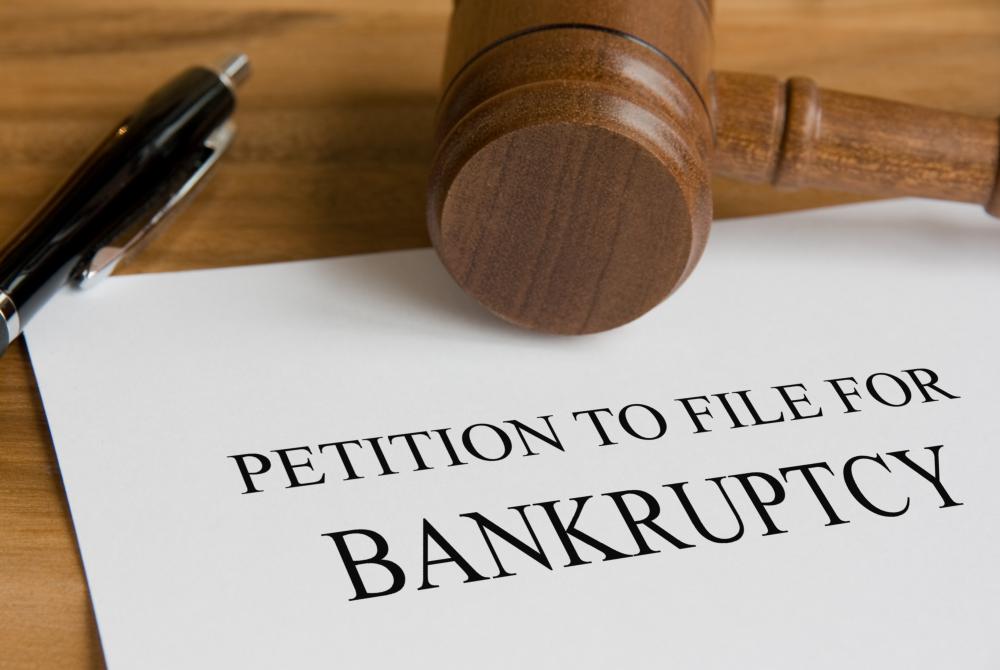At WiseGEEK, we're committed to delivering accurate, trustworthy information. Our expert-authored content is rigorously fact-checked and sourced from credible authorities. Discover how we uphold the highest standards in providing you with reliable knowledge.
What is Credit Card Arbitration?
Credit card issuers and customers can resolve disputes without going to court by using credit card arbitration. Arbitration is generally less expensive than a trial. The goal is to have a decision made by a neutral third party. Like any negotiation, credit card arbitration can present some challenges.
Arbitration does not have to follow the rule of law. Neither side can appeal the arbitrator’s ruling. These credit card arbitration rules can present major problems for some customers who do not agree with the arbitrator’s decision.

Some credit card companies include mandatory binding arbitration clauses in cardholder agreements. By using the card, the customer agrees to these terms. In mandatory binding arbitration, the customer waives the right to sue the card issuer. Arbitration is then the only means of settling disputes.
Binding arbitration requires the customer to abide by the arbitrator’s decision, and stops the customer from seeking remedy in another venue, such as a court. Usually, arbitration rulings cannot be overturned in court. Some rulings can be changed in court, if the customer can prove fraud or a significant conflict of interest on the part of an arbitrator.

Consumers subject to mandatory binding arbitration can hire an attorney during the arbitration process. Hiring an attorney can significantly raise the cost of arbitration. A benefit, however, is that the attorney's presence may help ensure that the arbitrator remains neutral.
In the 2000’s, mandatory credit card arbitration clauses came under scrutiny. Some individuals, local governments, and consumer rights organizations claimed that many arbitrators were not neutral, and sided with the credit card issuers most of the time. Arbitrators strongly disputed these claims. In 2009, some of the largest United States credit card issuers removed these clauses from the cardholder agreements.
When done properly, voluntary, non-binding credit card arbitration may be a useful means of debt settlement. A neutral party can offer a decision and both parties can agree to accept the proposed solution, or not. This process is sometimes cheaper for the consumer than hiring an attorney to negotiate with the card issuer or filing for bankruptcy.
In the United States, arbitrators are certified by individual states. Certification requirements vary by state. Some states require that arbitrators have legal experience. Other states only require a college degree or comparable professional experience. Retired judges and attorneys can work for arbitration companies.
Many times arbitrators are not employees of the arbitration company. Instead, they work as independent contractors. This employment arrangement may help ensure neutrality when making decisions.
Customers can read their credit cardholder agreements thoroughly before using any credit card. The agreement will include information on how to settle disputes, and if binding credit card arbitration is mandatory. Customers who need a copy of the agreement can contact their card issuers.
AS FEATURED ON:
AS FEATURED ON:












Discussion Comments
I recently had a VISA arbitration ruling against me, the cardholder, and for the merchant, with the Bank of America. They were impossible to deal with and actually said they had notes where they told me the what I submitted was not good enough, which was entirely not true. How do I get a copy of this arbitration ruling? If you want me to pay, then I want to see how they ruled.
I started the arbitration process with Bank of America, over an issue with my Visa card. They made it so impossible to work with them, I finally gave up.
The only way they were willing to help was if I agreed to do a credit card consolidation, which I didn't need. The whole thing was such a pain, I gave up the fight.
In 2009, Chase Bank sent me a letter saying that the fixed rate on my credit card was being raised from 3% to 9%. I contacted them and they gave me all sorts of incredible excuses for why and how they could legally do this to me.
The increase changed my monthly minimum payment from $115 to $380. I had been barely able to pay the $115, so a higher amount was out of the question.
I made call after call after call until I finally spoke to someone about arbitration. To make a long story short, it took about ten hours worth of phone calls, but we settled the matter through arbitration.
Chase closed my account, changed my interest rate to 0%, and put me on five year, fixed payment plan. I came out ahead for all the headaches.
Don't ever think that dealing with credit card companies guarantees that you'll come out on the losing end. With perseverance and by refusing to settle, you can get what you want.
Post your comments